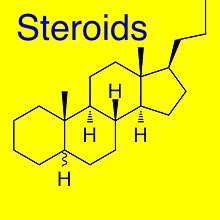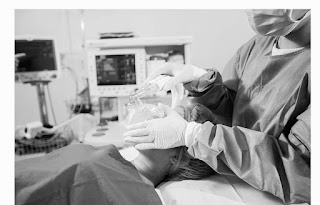Modern Recommendations for Using Glucocorticosteroids in the Perioperative Period in Cardiac Surgery
Modern Recommendations for Using Glucocorticosteroids in the Perioperative Period in Cardiac Surgery
Published on February 22, 2025
Keywords: glucocorticosteroids in cardiac surgery, perioperative steroids, cardiac surgery inflammation, modern steroid guidelines
The use of glucocorticosteroids in the perioperative period of cardiac surgery has been a topic of debate for decades. These powerful anti-inflammatory drugs can reduce complications, but their
application must be carefully balanced against potential risks. In 2025, with advancements in surgical techniques and updated clinical guidelines, the role of steroids in perioperative care is clearer than ever. This article explores the latest recommendations, evidence-based benefits, and practical tips for their use in cardiac surgery, optimized for patient outcomes and safety.Why Glucocorticosteroids Matter in Cardiac Surgery
Cardiac surgeries, such as coronary artery bypass grafting (CABG) or valve replacement, trigger a significant inflammatory response due to cardiopulmonary bypass (CPB). This systemic inflammation can lead to complications like postoperative atrial fibrillation (POAF), prolonged ventilation, or multi-organ dysfunction. Glucocorticosteroids, such as methylprednisolone or dexamethasone, are administered to dampen this response, potentially improving recovery.
But are steroids always the right choice? Recent guidelines from organizations like the American Heart Association (AHA) and the European Society of Cardiology (ESC) provide updated insights into when and how to use them effectively.
Current Guidelines for Perioperative Steroid Use (2025)
Based on the latest research and consensus, here’s what modern recommendations suggest:
- Routine Use is Not Recommended
- The 2023 STS/SCA Guidelines (Society of Thoracic Surgeons/Society of Cardiovascular Anesthesiologists) advise against routine steroid administration in all cardiac surgery patients. Evidence shows no consistent reduction in mortality or major complications across broad populations.
- However, steroids may still be beneficial in specific high-risk cases (more on this below).
- Targeted Use in High-Risk Patients
- Patients with a high inflammatory burden—such as those undergoing complex procedures (e.g., aortic arch surgery) or with preoperative conditions like chronic obstructive pulmonary disease (COPD)—may benefit from perioperative steroids.
- A 2024 meta-analysis in The Journal of Cardiothoracic Surgery found that dexamethasone (8-10 mg IV) reduced POAF by 18% in high-risk groups.
- Dosing and Timing
- Dexamethasone: A single dose of 8-10 mg IV at induction of anesthesia is the most studied regimen. It’s cost-effective and has a favorable safety profile.
- Methylprednisolone: Doses of 250-500 mg IV are sometimes used in prolonged CPB cases but lack robust evidence for superiority over dexamethasone.
- Administering steroids before CPB maximizes their anti-inflammatory effects, according to a 2025 study in Anesthesia & Analgesia.
- Avoid in Low-Risk Patients
Benefits of Glucocorticosteroids in Cardiac Surgery
When used appropriately, steroids can offer several advantages:
- Reduced Inflammation: By inhibiting cytokines (e.g., IL-6, TNF-alpha), steroids mitigate the systemic inflammatory response syndrome (SIRS) caused by CPB.
- Lower POAF Rates: Postoperative atrial fibrillation affects up to 40% of cardiac surgery patients. Steroids can reduce this by stabilizing cardiac membranes.
- Shorter Ventilation Time: A 2024 trial showed that dexamethasone shortened mechanical ventilation by an average of 2.5 hours in high-risk patients.
These benefits translate to faster recovery, shorter ICU stays, and potentially lower healthcare costs—key concerns for both clinicians and patients.
(Interested in optimizing your cardiac surgery outcomes? Check out our guides on perioperative care!)
Risks and Side Effects to Consider
Despite their benefits, glucocorticosteroids aren’t risk-free. Modern recommendations emphasize monitoring for:
- Hyperglycemia: Steroids can spike blood sugar, especially in diabetic patients. Protocols now include insulin titration during surgery.
- Infection: High doses (e.g., >500 mg methylprednisolone) may increase wound infection rates, though low-dose dexamethasone shows no significant risk.
- Gastrointestinal Bleeding: Rare with single-dose regimens but a concern in patients with a history of ulcers.
Balancing these risks requires individualized decision-making, often guided by the patient’s preoperative status and surgical complexity.
Practical Tips for Anesthesiologists and Surgeons
Here’s how to integrate steroids into your perioperative workflow:
- Preoperative Assessment
- Identify high-risk patients using tools like the EuroSCORE II or inflammatory markers (e.g., CRP levels).
- Discuss steroid use in multidisciplinary team meetings.
- Intraoperative Administration
- Administer dexamethasone at anesthesia induction for simplicity and efficacy.
- Pair with antiemetics (e.g., ondansetron) to counter potential nausea.
- Postoperative Monitoring
- Check glucose levels every 4-6 hours for 24 hours post-surgery.
- Watch for signs of infection, especially in prolonged steroid use.
(Looking for more tips on perioperative management? Explore our blog for expert advice!)
What Does the Evidence Say?
Recent studies provide a mixed but clarifying picture:
- A 2024 randomized controlled trial (RCT) with 1,500 patients found that low-dose dexamethasone reduced POAF (p=0.03) but had no effect on mortality.
- The DECS Trial (DExamethasone in Cardiac Surgery), updated in 2023, confirmed that high-dose steroids (1 mg/kg) offered no additional benefit over placebo and increased adverse events.
- Conversely, a 2025 retrospective analysis of 2,000 patients showed a 15% reduction in ICU stay with targeted steroid use.
The takeaway? Low-dose, targeted steroid therapy is the gold standard in 2025, avoiding the pitfalls of overuse.
Future Directions in Perioperative Steroid Use
Looking ahead, research is focusing on:
- Personalized Medicine: Genetic profiling to predict inflammatory responses and tailor steroid doses.
- Alternative Agents: Trials are exploring non-steroidal anti-inflammatory options, like IL-6 inhibitors, though they’re not yet standard.
- Long-Term Outcomes: Studies are underway to assess how perioperative steroids affect 1-year survival rates.
Stay tuned to this space for updates as new evidence emerges!
Conclusion
In 2025, glucocorticosteroids remain a valuable tool in the perioperative management of cardiac surgery patients—but only when used strategically. Current guidelines advocate for low-dose regimens (e.g., 8-10 mg dexamethasone) in high-risk cases, avoiding routine use in low-risk scenarios. By reducing inflammation, POAF, and ventilation time, steroids can enhance recovery, but careful patient selection and monitoring are key to minimizing risks.
For anesthesiologists, surgeons, and medical students, understanding these recommendations is critical to optimizing outcomes. Have questions or experiences to share? Leave a comment below!
(Want to dive deeper into cardiac surgery topics? Subscribe to our blog for the latest insights!)



